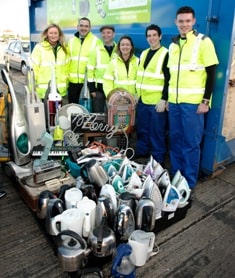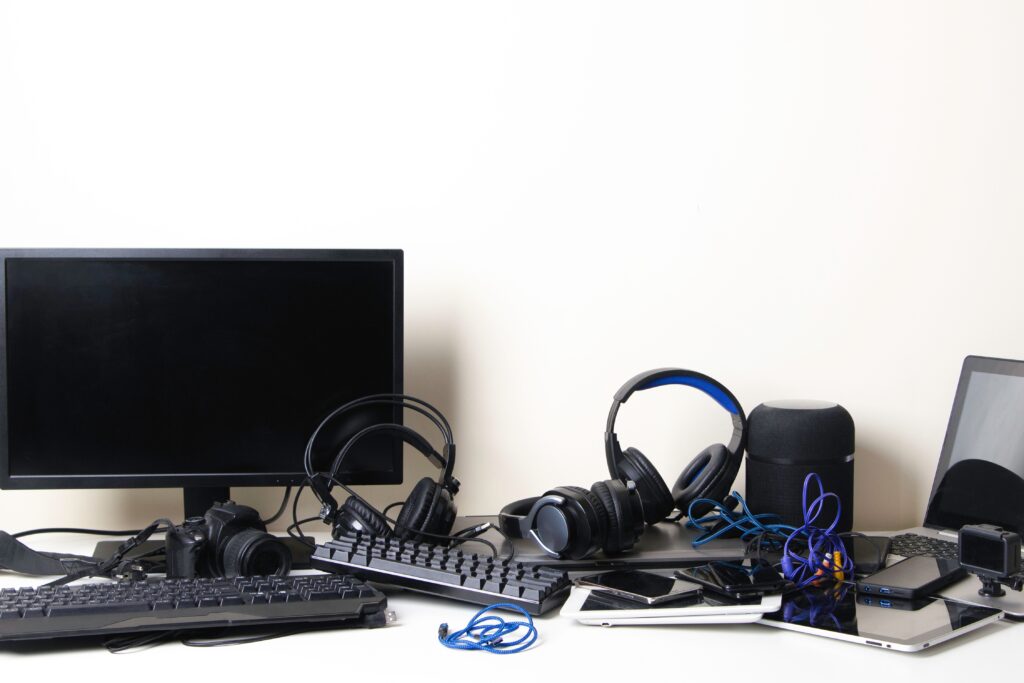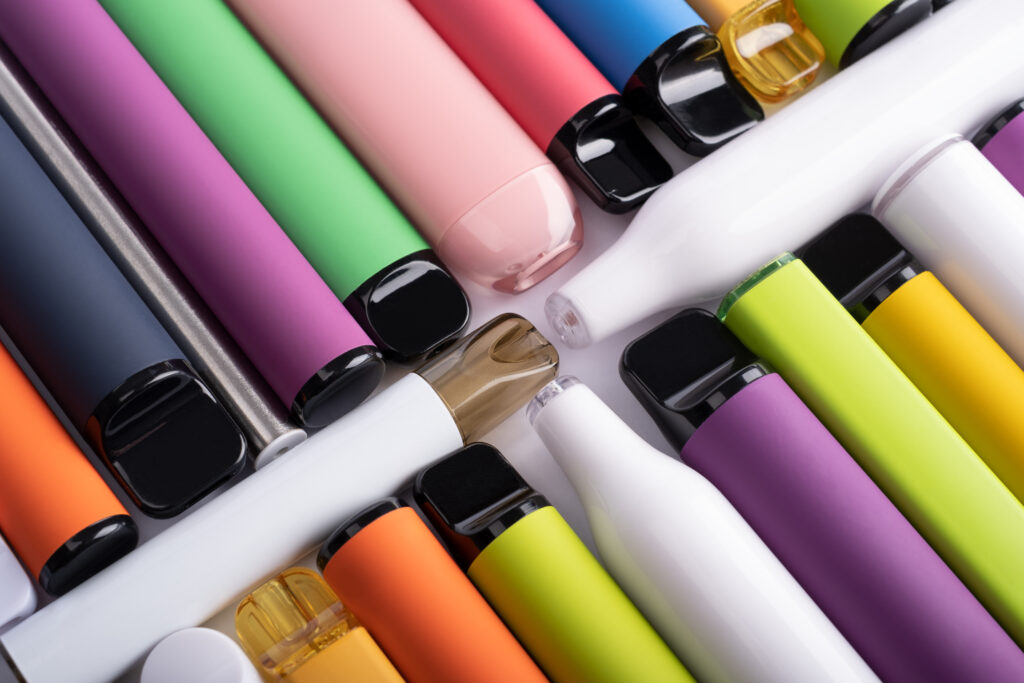Local authorities across the UK are increasing their efforts to recycle small waste electrical and electronic equipment (WEEE), with a variety of schemes getting underway.
Recent weeks have also seen local authorities stepping up general WEEE recycling efforts. The North London Waste Authority installed 59 WEEE bring banks across North London, Mid Devon district council is running a WEEE Amnesty Day for residents to drop off small WEEE items later this month, Nottingham city council runs a regular market stall for residents to deposit small WEEE and Huntingdonshire district council has established three WEEE bring banks across the borough.
West Sussex
In February, West Sussex county council set up a mobile recycling bank in the town of Selsey to encourage residents to bring unwanted or unused electrical items to be recycled. In one day alone, more than three tonnes of WEEE were deposited at the bank.
Hannah Rogers, senior contracts officer for waste for West Sussex county council, said: Recent research by WRAP indicated that people tend to hold on to their small electrical appliances, so we wanted to make it easy to get rid of old TVs and hairdryers that may be gathering dust.
The Selsey trial is the second of a number of WEEE collection events in the county. The campaign was supported by the WEEE Local Project Fund, a government grant for local authorities from the department for business, innovation and skills aimed at increasing WEEE recycling. We used the funding to design and manufacture an eye-catching container and to support a local communications campaign including leaflets and advertising.
As well as Viridor, we also worked closely with Chichester district council and [producer compliance scheme] Electrolink to make sure the approach was completely joined up.
Over the course of the trial, Viridor and West Sussex council collected a total of seven tonnes of WEEE. The local authority is now looking at extending the scheme to cover other rural communities in the county.
Local Project Fund
The WEEE Local Project Fund was set up by the Distributor Takeback Scheme in March 2011, and is overseen by the Department for Business, Innovation and Skills (BIS). Under the scheme, councils are able to apply for a share of the 650,000 available to support WEEE recycling initiatives.
Since establishing a kerbside collection scheme in December 2011with backing from its waste management contractor Biffa, Woking borough council has revealed that around six tonnes of WEEE have been collected from householders.
Under the scheme, householders were issued with pink bags to be left out on their usual waste collection day, for collection workers to collect and deposit in a specially fitted cage on the underside of the collection vehicle, where the small WEEE is then sorted at a household waste recycling centre.
Councillor Beryk Hunwicks, portfolio holder for waste and recycling at Woking borough council, said: We are thrilled that residents have embraced the new WEEE collection service and diverted several tonnes of electrical items away from local landfill. This additional recycling stream will help push our recycling rate beyond the current 60% mark.
Surrey Heath and Swale borough councils are due to launch their collection schemes in April.
Merseyside
The Merseyside Recycling and Waste Authority (MRWA) has also given householders an incentive to recycle their small WEEE items at one of its 14 household waste recycling centres (HWRCs) across the district. The MRWA are offering anyone depositing small WEEE items at an HWRC with a free heavy duty recycling bag.
Carl Beer, MRWA chief executive, said: We ran a bag giveaway scheme last year and it was very popular – in fact we shifted over 7000 bags. Our giveaways are always enthusiastically received by the public, so we know there is an appetite for recycling habits to be rewarded.
According to current estimates, around half a million tonnes of unused electronics items that are fit for recycling end up in general waste each year. Small WEEE has been targeted as a priority area for improvement through initiatives such as the WEEE Awareness Week, launched in June 2010, which attempted to raise profile of WEEE recycling.
Data published last week by the Environment Agency shows that the uptake of small WEEE recycling appears to have increased, with a greater amount of small WEEE recycled in 2011 than in the previous year (see letsrecycle.com story).











Subscribe for free